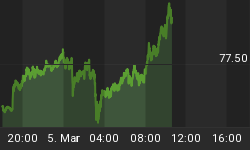Ben Bernanke is making sure the Fed's exit strategy goes as easily as a camel can pass through the eye of a needle. Instead of choosing to just sell assets and unwind the amount of securities it holds, the Fed chairman is seeking to be creative once again -- as he was in the buildup of its balance sheet--and increase the amount of interest it pays on excess reserves. He said this in a prepared statement for the House Financial Services Committee that was released on Wednesday, "It is possible that the Federal Reserve could for a time use the interest rate paid on reserves, in combination with targets for reserve quantities, as a guide to its policy stance, while simultaneously monitoringa range of market rates."
But in order to prevent intractable inflation, the Fed must at some point shed most of the $1.43 trillion worth of housing debt it will own by the end of March. The Fed's balance sheet has increased to $2.25 trillion from $925 billion at the start of 2008 and excess reserves in the banking system nowtotal more than $1 trillion.
Commercial bank deposits placed with the Fed that are not required to be held against loans are considered excess reserves. By paying interest on these central bank deposits, the Fed can raise the interest rate on interbank lending because loans to other banks are intrinsically more risky than loans given to Mr. Bernanke. But there are major flaws to this strategy. The Fed pays interest on reserves with yet more deposits held at the central bank. Therefore, paying interest on reserves further increases commercial bank deposits held at the Fed, and those new deposits will accrue interest as well...and so on. As a result, by choosing to not sell assets and drain liquidity from banks,the unwinding of their balance sheet will take many years.
Projections from the St. Louis Fed are that it will take 5-7 years for the Mortgage Backed Securities (MBS) to be paid off and unwound from the Fed's balance sheet. That means Ben Bernanke is betting banks will not make more profitable loans to consumers and enterprises during those years and will insteadopt for the lower return garnered from receiving interest on deposits.
Another risk that arises from deciding not to sell assets comes through the process know as sweeping. Banks currently have the ability to sweep money into Money Market Funds and time deposits. Those types of deposits do not have any reserve requirements. That means commercial banks do not need a large amount of excess reserves to create a tremendous amount of loan growth and new money. By concentrating on paying interest on reserves, the Chairman not only ignores the crucial action of dramatically reducing the Fed's balance sheet but also fetters his ability to increase the level of interest rates to a level that would attenuate rampant loan growth. In other words, since paying interest on reserves also increases reserves, there is a limit on how high the Fed canpay on deposits.
Mr. Bernanke also made it completely clear that any such future disposal of assets would come at a snail's pace. In regard to the speed of asset sales he said, "Any such sales would be at a gradual pace, would be clearly communicated to market participants and would entail appropriate consideration of economic conditions."
The most import factors in keeping inflation and money supply growth quiescent are to remove most of the excess reserves held at the central bank and to raise interest rates to keep the demand for loans in check. And it is the cost of money that is the most import governor for inflation. After all, it was not a massive build up in reserves that caused the housing bubble. It was the exceptionally low interest rates for an extended period of time that caused consumers to dramatically increase their debt load and for banks to substantially boost the availability of credit. By focusing primarily on increasing the interest rate on deposits held at the Fed to keep prices in check, Mr. Bernanke misses the key factors behind money supply growth and inflation.
















